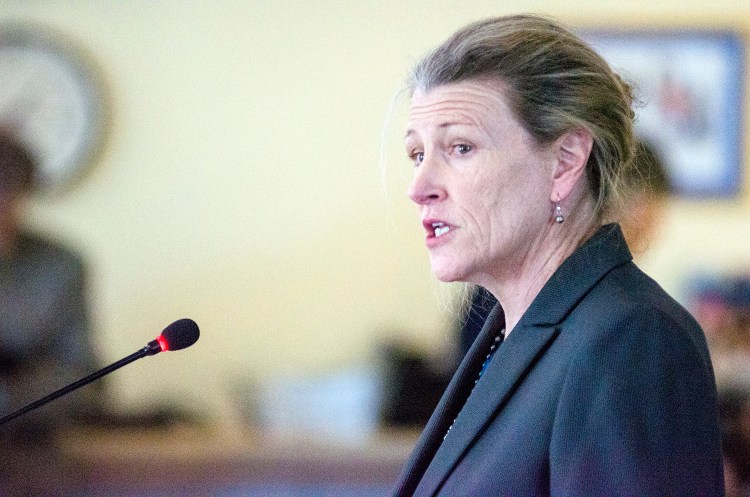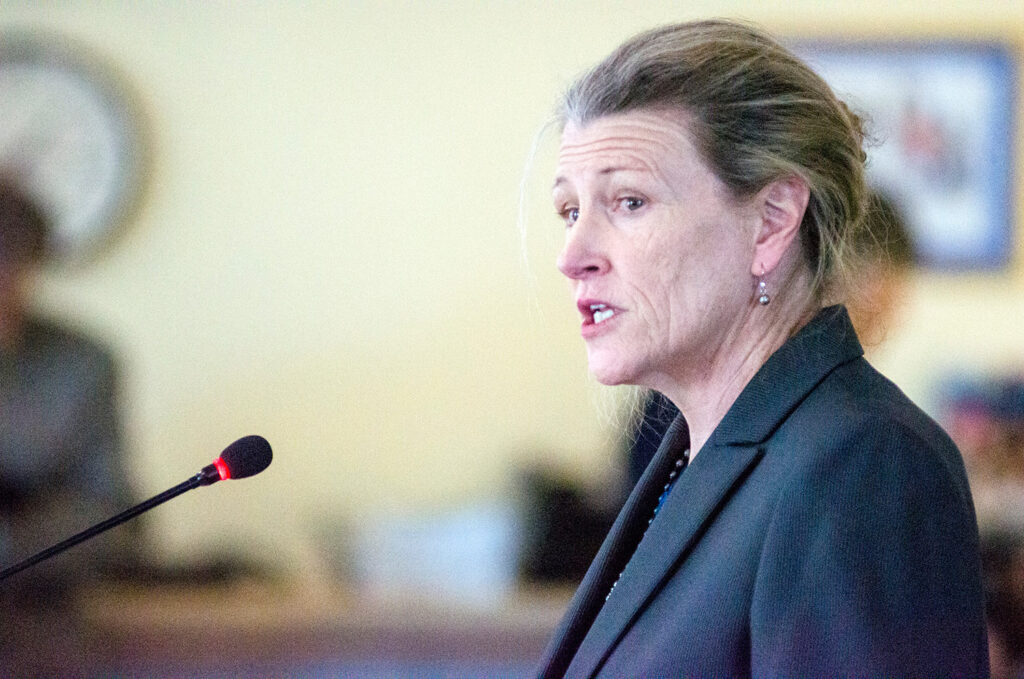Maine plans to ask the federal government for more flexibility in how it spends Medicaid funds to help people struggling with opioid use disorder and mental illness.
The Department of Health and Human Services announced Friday its intent to seek what is known as a Section 1115 waiver, which essentially gives states the opportunity to try new ways to deliver and pay for health care services.
“With this waiver application, DHHS is committing to advancing a seamless system of community-based, residential, and institutional substance use disorder and behavioral health services, including prevention to promote the wellbeing of children in our state,” DHHS Commissioner Jeanne Lambrew said in a statement. “That much-needed demonstration will yield critical information about how we can improve the delivery of these services.”
The current request seeks to waive something called the Institutions for Mental Disease (IMD) Exclusion, which bars states from using federal Medicaid dollars to pay institutions with more than 16 beds. The exclusion was created to promote the phasing out of older psychiatric wards in an era of deinstitutionalization, but it effectively prevents the state from allowing those on Medicaid to obtain care in residential treatment facilities.
As a result, many patients with behavioral health needs often end up in emergency rooms rather than dedicated mental health facilities. In fact, some facilities in Maine operate at a maximum of 16 beds because of this exclusion, even though there is often a need for more beds.
Waiving the exemption would allow for the expansion of access to those seeking treatment for substance use disorder, although the specifics of how it might be implemented have yet to be finalized. The department said that “in addition to supporting residential and inpatient care, the waiver directs participating states to improve community-based mental health care for adults and children … while maintaining current state spending on mental health and addiction treatment services.”
Bob Fowler, executive director of the Milestone Foundation, which operates a detox center in Portland and a residential drug treatment center in Old Orchard Beach, said he sees the waiver as good news. He said both of Milestone’s facilities operate at 16 beds specifically because of the exclusion.
“We’ll take a look and see if there is an opportunity to expand internally, but certainly systemwide this is going to increase capacity,” he said.
The recent expansion of Medicaid, authorized by Gov. Janet Mills following a lengthy delay after her predecessor, Gov. Paul LePage, refused to provide funds, means more people are likely to seek services for substance use disorder, mental health issues, or both.
Already, more than 20 states have been approved for this specific waiver and more are pending. In most cases, the waivers are designed to be budget-neutral, so it won’t necessarily mean more money for the state, just a shift in how the money is used.
“We will work with stakeholders to advance the health of MaineCare members who rely on these services, from prevention and early intervention to appropriate care in the right settings,” said Director of MaineCare Services Michelle Probert.
“Seeking this waiver marks a critical step forward in expanding options for treatment of opioid addiction that Governor Mills highlighted in her recent Opioid Response Executive Order,” added Gordon Smith, whom Mills tapped to serve as the state’s first-ever director of opioid response.
Section 1115 was created to allow states to use federal Medicaid funds in ways that are not otherwise allowed under federal rules. LePage applied for and was granted a waiver under that section last year to allow Maine to impose more stringent work requirements on those who receive Medicaid.
Mills opposed that waiver and shortly after she was sworn in last month, she sent a letter to the U.S. Centers for Medicare & Medicaid Services informing the agency that Maine would not accept the terms of the pending section 1115 Medicaid waiver. Instead, Mills said she would redirect DHHS and the Department of Labor to promote vocational training and workforce supports.
As the state develops its proposal, DHHS will host public hearings on March 6 in Augusta and on March 7 in Portland. People also can submit comments by email to: Policy.DHHS@maine.gov or by mail to: Division of Policy/MaineCare Services, 242 State St. 11 State House Station, Augusta, Maine 04333-0011.
Eric Russell can be contacted at 791-6344 or at:
Twitter: PPHEricRussell
Send questions/comments to the editors.



